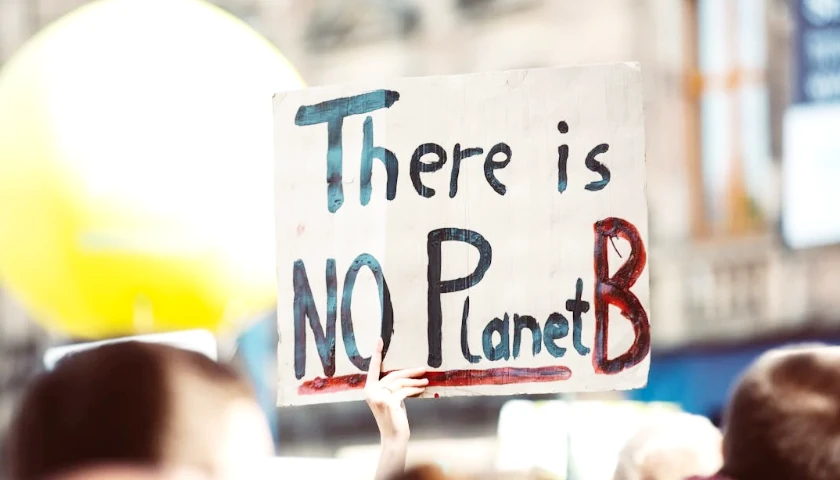by Bethany Blankley
U.S. Rep. Beth Van Duyne, R-Texas, represented by the Texas Public Policy Foundation, and the state of Texas are suing the Centers for Disease Control and Prevention, challenging the constitutionality of its requirement that people wear masks on commercial airlines, conveyances, and at transportation hubs.
The lawsuit is likely to go to the U.S. Supreme Court, TPPF said, where they think it will prevail. The statute being used to justify the CDC airline mask mandate is the same one used to justify the eviction moratorium over which TPPF sued and the Supreme Court struck down last year.
The lawsuit was filed in U.S. District Court for the Northern District of Texas Fort Worth Division. The Centers for Disease Control and Prevention, its director, Rochelle Walensky, CDC Chief of Staff Sherri Berger, the U.S. Department of Health and Human Services, and its Secretary, Xavier Becerra, and the U.S. government, are all named as defendants.
The plaintiffs are asking for the court to issue an immediate injunction against the mandate, and to end it for good. It’s set to expire in March, but the CDC is expected to extend it again, as it has in the past over the past nearly two years, unless a judge blocks it.
As long as the airline mask mandate has been imposed, most Americans have assumed that because the federal government has control over U.S. airspace, it can control what policies the airlines must implement, including the mask mandate, TPPF General Counsel Robert Henneke told The Center Square. But after looking at the statute the Biden administration used to justify the CDC mandate, that’s not the case, Henneke said.
What the Biden administration did, he argues, is unconstitutional.
“Congress has never passed a law authorizing the executive branch to issue blanket mask mandates on American citizens,” Henneke said. The U.S. Constitution grants the executive branch the authority to enforce laws passed by Congress and grants Congress the authority to make laws.
“The executive branch does not have independent policy making authority,” he said.
After the U.S. Supreme Court struck down the CDC eviction moratorium imposed on residential landlords, and struck down the private sector COVID-19 vaccine mandate – two cases over which TPPF sued and won – Henneke said they began looking into other mandates that believed were also unconstitutional and/or not justified by federal statute.
“When we took a hard look at the alleged justification from the government, the justification isn’t there,” he told The Center Square. “The statute the Biden administration claimed gave the CDC authority, didn’t give the CDC authority.”
Van Duyn, TPPF’s client, who sits on the House Committee on Transportation and Infrastructure, has been pushing back against Biden administration mandates nearly her entire first year in Congress. She’s written letters to the administration, cosigned legislation to end the airline mask mandates, and continues to meet industry leaders in her district, which is home to the second-largest airport by acreage in the U.S. Dallas Fort-Worth International Airport is also the busiest airport in the world, even during the state’s 2020 shutdown.
“With their constantly changing science, fluctuating recommendations and oppressive need to control all aspects of society, the CDC has caused our country untold damage,” Van Duyne said. “It is time for all mandates to be lifted, including those affecting airline passengers.”
The lawsuit argues that Congress never gave the CDC authority “to make or enforce regulations that amount to a blanket preventative measure against people that may or may not carry infectious disease.” Instead, the CDC exercising such authority violates the separation of powers and constitutes an abuse of power, it alleges.
“The CDC is relying on specific and narrowly tailored provisions in the law to exercise enormously broad powers Congress has not granted the agency,” TPPF senior attorney Matt Miller said. “If someone were to be known to have COVID-19, the agency could then take steps to prevent that person from spreading the disease to others. But the CDC has no authority to make rules that limit the freedom of millions of travelers without any evidence in the hopes it may have some preventative effect.”
According to the complaint, the statutes the CDC is using “require the CDC to act only once it ‘determines that the measures taken by health authorities of any State . . . are insufficient to prevent the spread of any of the communicable diseases from such State . . . to any other State.’” But the CDC, TPPF argues, “made no sufficient findings on this point.”
The statues also require, “’For purposes of carrying out and enforcing such regulations, the [CDC] may provide for such inspection, fumigation, disinfection, sanitation, pest extermination, destruction of animals or articles found to be so infected or contaminated as to be sources of dangerous infection to human beings, and other measures, as in his judgment may be necessary.’” But the catchall phrase, “other measures” TPPF argues, “is limited to ‘the kinds of measures like the ones listed in the statute.’ A mask mandate for all people of unknown infection status is not like the measures listed in the statute.”
Henneke says the lawsuit, “in some ways, seeks to restore the correct perspective” for how Americans view and understand the role of government and ordered liberty. Citizens shouldn’t have to justify why they should be exempt from government mandates. It’s the government that should be justifying any attempt to infringe upon personal liberty.”
Ongoing mandates, and fighting them, he added, “is a good lesson on the need for Americans to be more proactive in challenging the premise of government authority, especially in unprecedented ways like has been done during the COVID period.”
– – –
Bethany Blankley is a contributor to The Center Square.





